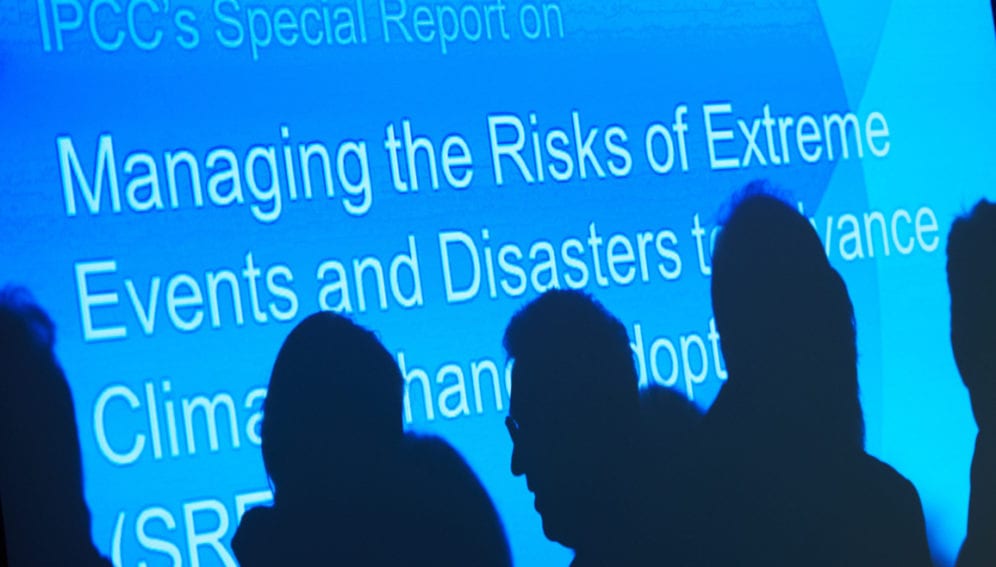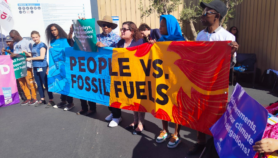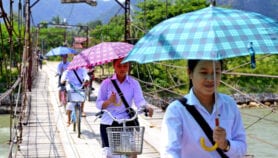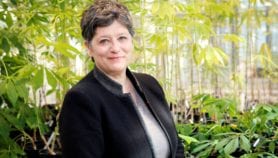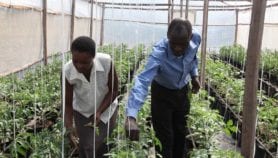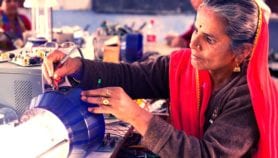Send to a friend
The details you provide on this page will not be used to send unsolicited email, and will not be sold to a 3rd party. See privacy policy.
Constant calls for evidence-based policy miss the underlying politics of knowledge, argues analyst Peter Bille Larsen.
Knowledge and science for sustainable development are intimately interlinked. Not only did the very notion of sustainability emerge from the scientific community, a constant flow of scientific reports on burning topics ranging from climate change to biodiversity loss also suggests the central role of scientific observation.
But as the sustainability crisis grows, the recent history and practice of this science-policy interface suggests a difficulty in bridging the two. The question is, what can we learn from this?
Milestone for science input
Forty-five years ago, a pioneering UNESCO (UN Educational, Scientific and Cultural Organization) meeting on 'The scientific basis for the rational use and conservation of the resources of the biosphere' was a milestone global event bringing more than 300 scientists and policymakers together. It spearheaded the role of science in recommending action to resolve environmental problems.
A quarter of a century later, at the 1992 Rio summit, the Agenda 21 action plan (a non-binding plan for sustainable development) encouraged scientific research that integrates concerns over global population, environment and development with disciplines such as meteorology, hydrology, forestry and soil and plant sciences.
Chapter 31 of the Agenda specifically sought to enable the scientific community "to make a more open and effective contribution to the decision-making processes concerning environment and development". [1] And it called for greater use of science and independent research.
Since then, international conferences and sustainable policy-oriented research have mushroomed. Scientists are regular authors of policy papers, are members of scientific committees and engage in expert dialogues with policymakers.
This new stage of science-policy mechanisms is here to stay. But, in the meantime, sustainability problems have also expanded and deepened. How are we to make sense of this paradox?
Evidence sidelined
The outcome document to last year's Rio+20 conference reiterated the need to "strengthen the science-policy interface", emphasising "inclusive, evidence-based and transparent scientific assessments". [2]
This is, perhaps, a polite way of recognising the limited influence that 'interface outputs' such as Intergovernmental Panel on Climate Change (IPCC) reports have had on the outcomes of global policy debates.
Despite constant calls for evidence-based analysis, it is not the lack of evidence or transparent assessments that is behind the indecision of global sustainability politics.
Thoroughly researched reports speak in plain language, yet are often present by name only in final decisions. Technical reports and scientific reviews — from World Heritage evaluations and Red Book data on species loss to climate change scenarios — may cause a stir, but are frequently rejected or simply ignored.
Some might ask what the point is of producing more and better science and technical assessments if they remain stuck in the policy pipelines. It matters, of course — but the path from knowledge to policy action is treacherous.
Constraints on debate
To get past this problem, researchers need to show, and question, more explicitly the politics of knowledge that frame the interface between science and policy.
While often presented as neutral platforms for initiating debate, science-policy interfaces are commonly constrained in many ways. They are fundamentally social fields framed by intergovernmental politics.
Consider, for example, the first report from the recently established Intergovernmental Platform on Biodiversity & Ecosystem Services. [3] Readers will perhaps be surprised to find little substantial text on sustainability science, biodiversity and ecosystem services. They will instead encounter agreements about rules of procedure and working methods along with bracketed text where agreement was not reached.
Up for negotiation are nominations of experts to join the platform, a decision on who may observe proceedings and the next steps for the initial work programme. State membership and agreed-upon working processes secure political buy-in, but they also reflect a process of 'intergovernmentalisation' that enables and constrains the future nature of the debate.
Consider, too, climate sceptics' virulent attacks against the validity of IPCC reports. One effect of these assaults may have been a tendency, in the public debate, to pigeonhole the science-policy interface as only relating to questions of procedure and data quality.
Questioning methods or the validity of conclusions is, of course, at the heart of scientific debate. But there is much more to the politics of knowledge, ranging from what disciplines and paradigms are considered 'policy relevant' to the types and forms of knowledge considered valid inputs.
Changing tactics
Given the string of failures of intergovernmental forums to take science on board, how do we ensure that new interfaces succeed where existing ones have failed?
There is a need to broaden what is considered relevant research, as well as levelling the playing field in terms of who contributes their knowledge. Given the sheer diversity of sustainability challenges, we need to recognise that much relevant knowledge production is found among organisations and communities in forms that may never translate into high-impact peer-reviewed articles.
Transdisciplinary knowledge production, hybrid knowledge products resulting from partnerships between scientists and indigenous knowledge holders, and hands-on research by NGOs are just three examples of thinking outside the box to address contemporary challenges.
Given the scale and complexity of sustainability problems, the development community needs to think creatively and expand the boundaries of the science-policy interface. Inter-governmental platforms are starting points, not ends in themselves.
It is perhaps time to stop merely seeing global sustainability policy negotiations as a string of failures in need of yet another conventional knowledge fix. Bridging the knowledge gap is not merely about debating peer-reviewed science, but also about mobilising research and science more broadly to engage with the deepening challenges of our times.
Peter Bille Larsen lectures in anthropology at the University of Lucerne and is currently a visiting fellow at the Oxford Department of International Development, University of Oxford. He can be contacted at [email protected]
References
[1] United Nations Agenda 21 (United Nations, 1992)
[2] United Nations The future we want (United Nations, 2012)
[3] UNEP Report of the first session of the Plenary of the Intergovernmental Science-Policy Platform on Biodiversity and Ecosystem Services (UNEP, 2013)


